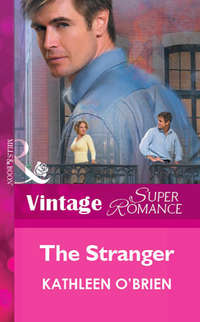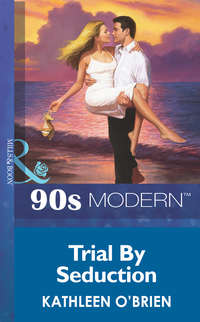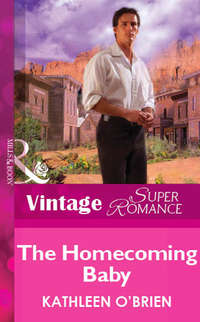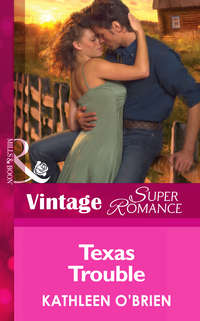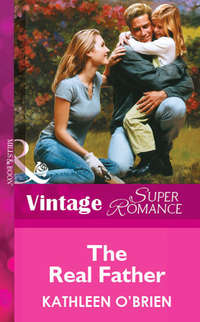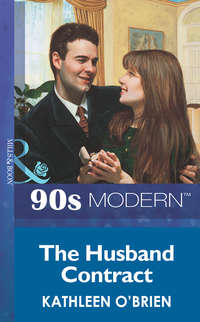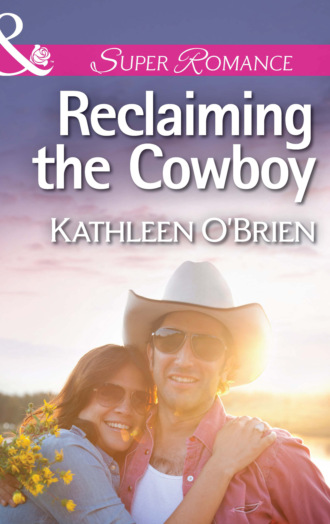
Полная версия
Reclaiming the Cowboy
“From me?”
“Of course.” Dallas met his gaze steadily. “Bonnie O’Mara, or whoever she is, is your mystery, Mitch. Only you can say when you’re ready to solve her.”
* * *
BONNIE’S HOMECOMING, after two years on the run, could have been a splashy, trashy, conspicuous celebration. If she’d wanted to, she could have chosen to appear in sequins, sparkles and feather boas, holding a neon sign that said “Surprise, sicko! You lose!”
Instead, as she slipped into the large elegant hotel ballroom where her mother’s charity auction was being held, Bonnie wore head-to-toe black. It seemed fitting, somehow, since she hadn’t been able to attend the funeral.
Missing that service had been very painful. She’d even dreamed, briefly, of sneaking back here to Sacramento, just for an hour. She’d imagined herself standing unobtrusively in the rear of the church, with glasses, maybe, or a veiled hat.
But that would have been suicide. No disguise would have been adequate. Jacob undoubtedly had anticipated her showing up, and he would have been ready.
So instead she’d marked the day, privately, at her nursery job at Crystal Eden back in Colorado Springs. When the church bells down the block had rung the noon hour, she’d stopped right in the middle of hauling potting soil, dropped the handles of her wheelbarrow and shut her eyes.
She’d said a prayer. And when she’d glanced up, a tangerine cloud shaped like a ballerina had been executing a grand jeté across the sky. She liked to believe it was a message from her mother, letting Bonnie know she’d found freedom and peace at last.
After that, her wait had been easier. She loved the nursery job, and the days flew. All thirty-one of them.
A month and a day. That was how long had passed, between the night her mother had died and this clear April afternoon when Bonnie had finally come home.
If she could even call Sacramento home anymore. She’d lost so much over the past two years. But somehow she had survived. That was all that really mattered now.
She had outwitted Jacob. She couldn’t really absorb that fact, even now that she saw him, up there, so sanctimonious and self-important in the first row. It was the first time she’d laid eyes on him since she had left, nearly two years ago.
It was the first time she’d seen any of these people since then. The auction house was filled with friends of her grandmother, collectors, critics, other artists and other Sacramento bigwigs—people she’d known all her life.
They didn’t recognize her yet, of course. They weren’t expecting her. Most of them probably thought she was dead and assumed her body would never be located, or that if she ever were discovered, she’d be pathetic and half-mad in some art colony somewhere, as her mother so often had been found.
The stylish black hat she’d bought yesterday covered her hair, which she’d had stripped back to its natural color, but pinned tightly to her head, so that it wouldn’t give her away too soon.
She took a seat quietly at the back of the auction room, attracting little attention from anyone except her attorney, who had technically known she’d be coming but had still looked relieved when she’d appeared.
Everyone else was focused on the oil painting that had just been brought out. A low rumble of appreciation moved through the audience as they caught their first glimpse of the portrait, the girl with the legendary cascade of red-gold hair.
It was, indisputably, one of the most beautiful of the Annabelle Oils, a series of paintings done by the California portraitist Ava Andersen Irving. Sixteen complete oils, all with only one subject—Ava’s Titian-haired, blue-eyed, fairylike granddaughter, Annabelle Irving.
The series had begun when Annabelle had been just a year old and had continued until Ava died, when Annabelle was fifteen. The paintings and adjunct sketches had made Ava rich...well, richer, given that she’d already married into money.
And they had made little Annabelle famous. It had made a million people think they knew her, made them romanticize and misunderstand her, as if she were Ophelia or Alice in Wonderland. Somewhere along the way, Annabelle Irving had stopped being a normal child and had started being a myth. Strange, ethereal, otherworldly, elfin, odd...just a few of the adjectives art critics loved to apply to her.
The portraits were officially known by numbers only. This was Fourteen, which didn’t correspond with the subject’s age, because Annabelle had been only twelve the year this one was painted. Twelve, and so tired of sitting still. Her grandmother had positioned Annabelle next to a window, where the light hit her hair just right. Out of the corner of her eye, Annabelle caught a tantalizing hint of buttercups dancing in the wind, but she wasn’t allowed to look. She was barely allowed to breathe.
That particular year, Annabelle had rebelled, briefly, the way preteens sometimes did. The slight puffiness beneath the famous blue eyes was proof of the storm of tears, the refusal to cooperate, the desperation to be set free.
Ava had been furious, at first, but eventually she had announced that the hint of sadness added pathos to the painting, which was ultimately priceless.
With a start, Bonnie came back to the present, realizing the bidding had begun. She didn’t move a muscle. She didn’t want this painting. She hated it. But she was glad to see the price rise higher and higher. Her mother had owned Fourteen outright, and she had left instructions in her will that it, along with a small pencil sketch of Annabelle, the only two pieces from the series that legally belonged to her, should be auctioned after her death. The proceeds were to be donated to the women’s shelter that had taken in Heather Irving so many times during her troubled life.
Jacob was bidding, too. Bonnie smiled grimly behind her black-dotted Swiss veil, watching him lift one elegant finger, then let it drop, then lift it again. Was he using his own money, she wondered, or hers?
He didn’t win. When the figure sailed too high, he shook his head discreetly at the auctioneer, then turned around to see who had beaten him. Recognizing an elderly California art collector whose goodwill he obviously needed to keep, he threw a smile of graceful surrender.
As his smarmy gaze raked the crowd, Bonnie froze, wondering if he’d see her. It no longer mattered, not as it once had. She wasn’t in danger anymore. He didn’t have anything to gain by hurting her now.
But she wanted to do this her way.
The drawing was up next. Only nine-by-twelve, and unframed, it looked like the unloved stepsister of the larger oil. But Bonnie adored this picture, a practice sketch for Nine. In it, a seven-year-old Annabelle was in profile, one arm thrown over the back of a straight wooden chair, and she gazed longingly out the window. It was an odd little thing, drawn mostly to help Ava get the flowers right. Annabelle herself was rendered in simple charcoal, while the blooming gardens outside the window were bursting with vibrant color.
Bonnie remembered that summer so well. It had been one of the few times she’d been posed looking through the window. Being able to watch the bees buzzing around the roses and the butterflies dipping into the penta plant... It had made the hours so much easier to bear.
It had been almost as good as being free.
She raised her hand. The auctioneer glanced at her, too professional to show surprise at a new bidder this late in the game. Her attorney remained utterly still and impassive, giving nothing away prematurely.
She had many competitors. She wasn’t the only one who could see the special joy in this sketch—one of the few pictures in which the infamous Annabelle looked like a normal child.
But she didn’t care if everyone in the room bid against her. She would have this sketch, whatever the price. She was a rich woman now, and if she ended up donating every dollar of her inheritance to the women’s shelter, that was fine with her.
She raised her hand again and again. Quickly, people began to stare at her. Jacob himself had turned half a dozen times.
He was merely curious at first. Then she saw him squinting, confused. And then a slowly dawning alarm.
His posture tightened, all the easy insouciance evaporating. Eventually, when the bidding had come down to Bonnie and one other, Jacob didn’t even bother to pretend he wasn’t staring. He sat permanently swiveled toward her, his neck uncomfortably twisted. He gripped the seat of his chair with both hands, as if he had to hold himself down.
Finally, her last competitor dropped out. The price was absurd, even for an Annabelle sketch. As the bid assistant bent over her, Jacob obviously couldn’t endure the suspense another minute. He stood and started moving toward her, dark and malevolent, like the California mudslides that coursed down hillsides blindly, burying everything in their paths.
The bid assistant hesitated, confused and slightly startled by the frigid waves of fury suddenly pulsing through the air around them.
Jacob’s face said it all. He knew. He had to know. He had to understand, at that terrible moment, that he’d lost. That all his attempts to outwit her, to ruin her... No, no euphemisms. Just state it baldly, like the hideous truth it was.
All his attempts to kill her had failed.
As Jacob approached, Bonnie stood, too. She lifted the veil from her face and smiled. Only five feet away, he froze, as if she were a gorgon, a Medusa—as if one look from her blue eyes had turned him to stone.
A murmur spread through the room. Good. She wanted everyone, from the millionaires to the janitors, from the journalists to the guards, to know her. She removed her hat with one motion, then pulled the clip that had held her hair in its tight twist. A cascade of red-gold hair fell around her shoulders, and the murmur rose to an excited buzz.
“Annabelle!” Jacob lunged forward.
Abruptly, her lawyer jerked to a standing position, as if to block whatever the crazed man might have in mind. But Jacob pushed past him, rearranging his face as he came toward her. By the time he touched her, he was affection incarnate, the epitome of cousinly love.
He reached out and enveloped Bonnie...Annabelle...in his arms.
“Belle, Belle!” He was so smooth, so good, that if she didn’t know better, she’d believe he was overjoyed. “Oh, Belle, thank God you’re alive!”
CHAPTER THREE
IT SHOULD HAVE been a peaceful Monday afternoon at the ranch. Instead, having counted every single second in the week since his meeting with Dallas, Mitch was going crazy.
On TV it took about thirty seconds to get a fingerprint match. Even factoring in reality, and the need to do this through back channels, what could possibly be taking eight whole days?
And then, just as Mitch was winding up the training session with Rusty, one of Bell River’s newest ponies destined to take the littlest guests on trail rides, he saw his brother coming toward him.
Hell. Dallas had news. And it wasn’t good news.
Mitch could sense that much from a hundred yards, just watching the way Dallas walked, framed in silhouette through the doorway of the indoor paddock. The first clue was the tight, squared-off position of his shoulders. And when Dallas cleared the door and the overhead lights hit him, Mitch could read the grim evidence on his face.
“Scat, Alec,” Mitch said to his nephew, not roughly but flatly, without sugarcoating. “Go help Rowena with the baby. Your dad and I are going to need some privacy.”
Alec made an irritated snicking sound between his teeth. He’d been having fun helping Mitch, and he didn’t want to quit. “Privacy for what?”
Mitch rolled his eyes. Seriously?
“We’re making plans to sell your scrawny body for spare parts. We can’t have you listening, so scram.”
Alec started to protest again, but then he glanced over at his dad, and apparently the kid could read body language, too. When Dallas had a face like that, Alec wanted to be somewhere else.
So did Mitch, who was suddenly as terrified as if he, too, were a kid. He tried to stop his heart from thumping so fast. He tried to stop his mind from imagining all kinds of horrors. Okay, the news was bad. How bad?
Bonnie was married. Bonnie was a criminal, a nutter...
Or even worse, she was still a mystery. If her fingerprints hadn’t turned up a match, then they were no closer than before to finding out who she really was.
Or... The thumping inside his chest stilled viciously.
Or Bonnie was dead. Whatever she’d been running from had caught her.
“Hey, there.” Dallas reached Mitch just as Alec disappeared through the side doors, leaving a trail of kicked sand behind him. Dallas patted the new pony’s neck. “How’s Rusty doing?”
“He’s fine.” Mitch stroked the pony’s flank approvingly. “But don’t make small talk. You know something. Tell me.”
Dallas continued to rub the pony’s glossy coat. He hadn’t yet met Mitch’s eyes, which was truly unnerving. Dallas was rarely daunted by uncomfortable truths. It was one of the traits that made him a good sheriff. He could deliver bad news with as much composure as he delivered the good.
“Dallas.” The drumming against Mitch’s ribs sped up. “You’re killing me here.”
Dallas finally looked straight at him. “We should probably sit down.”
Mitch didn’t argue. He waved a finger to one of the stable hands who was in the corner viewing room, talking on a cell phone. He pointed to Rusty, and the young man scurried out to take the pony away.
“Okay. Let’s go over here.” With the horse disposed of, Mitch led the way to the far side of the paddock. He opened one of the latches on the kickboards and took the first of the spectator seats on the first row of bleachers.
Dallas left an empty seat between them when he sat. He laid his hat down there with a sigh.
“We found her,” he said. “She’s alive and well. She lives in Sacramento. But...her name’s not Bonnie.”
At first, all Mitch could feel was the relief. Alive. Well. Damn, those were beautiful words.
But then the rest of Dallas’s sentence sank in. Her name’s not Bonnie. It shouldn’t have shocked him. He’d known she must’ve been using a fake name—nothing else made sense. But, as he heard it confirmed, he was glad he was sitting, as if the solid floor might have turned to swamp.
He thought of all the times he’d said her name. Laughing. Whispering. Crying into the night air.
Damn it, Bonnie, where are you?
Bonnie, Bonnie, please...
“No, of course not.” He sat up straight. “What is her name, then?”
Dallas eyed him for a minute before speaking. Mitch felt as if he were being measured, like a horse being fitted for a bit, to see how much of the truth he could take between his teeth at once.
“Annabelle Irving.”
The name was oddly anticlimactic. It meant nothing to Mitch. It was the name of a stranger.
“Okay,” he said slowly. “But who is Annabelle Irving?”
Dallas smiled. “I didn’t know, either. Apparently we’re just a couple of dumb cowboys. But with the cultured crowd she’s somebody. Her grandmother was a well-known artist, and Annabelle was her favorite subject. There’s a whole set of paintings of her called the Annabelle Oils, and collectors go nuts for them.”
Okay... Mitch rubbed the knee of his jeans. That was okay, right? An artist’s model. He could live with that. And instinctively, he could believe it. He remembered how unnaturally still and self-contained Bonnie could be. She didn’t even change her expression, sometimes for many minutes at a time. He’d once wondered whether she’d been a nun, because she seemed so accustomed to sitting in silent immobility.
But why would an artist’s model need to go on the run under an assumed name? It wasn’t as if your average person had ever heard of her. She could have shouted, “I am Annabelle Irving” from the rooftops of Silverdell, and no one would have so much as blinked.
He narrowed his eyes. “Wait a minute. To match her fingerprints, you have to have a set on file, right? I mean...her prints as Annabelle Irving had to be in the system. How does an artist’s model get her prints into the database?”
One of the trainers had just brought a palomino into the paddock on a lead line. Mitch wished he could yell at her to get out and come back later. But Bell River was a working dude ranch, humming with staff, guests and wall-to-wall activities. He wasn’t going to find complete privacy anywhere.
Dallas flicked a glance toward the young woman, then bent forward, his elbows on his knees, and lowered his voice.
“She was in the system because about seven years ago, when she was eighteen, she stabbed a man with a pair of pruning shears.”
Mitch drew back. “Bullshit.” He said it too loudly, and the trainer glanced their way for one split second before studiously returning her attention to the horse. Mitch wasn’t technically anyone’s boss, but the family tie was close enough to make employees reluctant to cross him.
Dallas frowned, and Mitch shook his head roughly. “Sorry, but...stabbed a man? Like hell she did.”
“I’m afraid that part isn’t even disputed. There’s a police report. She admitted stabbing her cousin, a lawyer named Jacob Burns. She says it was self-defense, because he tried to molest her. He says they were arguing over management of the estate, which, upon her grandmother’s death, had been left to an executor.”
Mitch felt a touch of nausea roll through him. “Her cousin tried to... What the devil do they really mean by ‘molest’? He tried to rape her?”
Then he realized that, instinctively, he’d already decided Bonnie was telling the truth, not this disgusting Jacob whatever. “I mean...come on. The guy’s her cousin? That’s just sick.”
“If it happened that way.” Dallas sounded patient. “But clearly the cops didn’t buy her story. Apparently, she had a history of erratic behavior, though this is the only episode that occurred after she turned eighteen. Earlier records are sealed, because she was a juvenile. And, no, I’m not going to try to get someone to pry them open.”
“I wasn’t going to ask you to.” Mitch glared at his brother, his mind going a mile a minute. “So...what? What’s the bottom line here? You think she was running from her cousin?”
Dallas lifted his shoulders. “Don’t know. I didn’t dig any deeper. You asked for a name, and I got one. At the time, no charges were brought, so even if she thought she was running from her cousin, there’s no evidence that...”
“That what?” Mitch’s lips felt stiff.
“That Jacob Burns is dangerous. He was never arrested. He was about twenty-five at the time, just out of law school. He practices in Sacramento now, and apparently he’s a big deal. Annabelle, on the other hand...” He hesitated. “The authorities sent her for psychiatric evaluation, and she spent some time in a mental-health clinic. Just a few weeks, but—”
“But you think she’s nuts. What the hell, Dallas? You knew Bonnie. We all did. You think she’s insane?”
“No.” Dallas spoke slowly, and pity dripped from the word. He pitied Mitch, because Mitch had fallen in love with a kook. “Not insane. But maybe...troubled. You know? Maybe she’s trouble.”
Mitch thought his blood pressure must be about a thousand—he could feel his heart beating behind his eyes. He wanted to punch someone or something. He’d punch Dallas, except that he’d learned better about twenty years ago. Dallas might be a saint, but he had a right hook like a demon.
“Yeah, well, I remember what Dad said about Rowena, back in the day,” he countered acidly. “That she was trouble was the least of it.”
The minute the words came out, Mitch felt himself flushing. That was a low blow. It wasn’t fair. Mitch liked his brother’s wife, always had. And Rowena had had her reasons for acting wild. But why couldn’t Dallas see that Bonnie must have had her reasons, too?
“I’m on your side here, Mitch,” Dallas said mildly. “I thought you were through with her, anyhow.”
“I am.” Mitch stood. “I am. But just because she broke my heart...that doesn’t mean I have to pretend she’s a monster. She’s not. And she’s not a liar.”
Dallas raised his eyebrows.
“She’s not,” Mitch repeated. “A hundred times, when I was trying to make her tell me what was going on, it would have been easier for her to invent any old story, just to shut me up. But she didn’t. She didn’t want to tell me the truth, but she was too good to tell me a lie.”
“Okay.” Dallas nodded slowly, though he clearly wasn’t convinced. “But there’s one other thing you ought to know. If you look her up, you’ll see. She’s rich.”
“I don’t give a damn about that.”
“I know. I just want you to be prepared. When I say rich, I don’t mean comfortable. I mean really rich. Dripping, Rockefeller rich.”
Mitch hesitated, looking down at his brother’s somber face. “I see. What you’re trying to say is that she’s out-of-my-league rich.”
“More or less, yeah.” Dallas didn’t mince words. “I’m saying she’s trouble, and she’s out-of-our-league rich. Look, she left you. You had a grand adventure, but it’s over. She’s gone back to her real life. You need to let it go, Mitch. You need to let her go.”
* * *
MAYBE JACOB AND the rest of them were right, Annabelle thought as she knelt, here at this fork in the bricked path of Greenwood’s butterfly garden, oddly paralyzed and unsure where to plant the final daffodils. Maybe she was crazy. Divorced from reality, dysfunctional, paranoid—just as her mother had been.
Because the way she felt, now that she was back home at Greenwood...
She felt like her own ghost.
So maybe they were right. Maybe it was loony to feel that her invented alter ego, Bonnie O’Mara, was more real than Annabelle Irving could ever be.
Maybe it was bonkers to insist on living in the Greenwood gardener’s cottage and refuse to spend a single night in the elegant, twenty-two-room Italianate mansion where she was born and raised.
Maybe it was daft to dream of taking the Irving fortune, every hellish dollar of it, and burning it in a bonfire down by the creek.
But the truth was...being back here, being the heiress to all this had paradoxically stolen any hope of being happy. It had reduced her once again to an object, a thing, a possession, instead of a woman.
All her life, Annabelle had understood she wasn’t a person. She was an idea. An arrangement of colors on canvas. A mythical, imaginary creature who came to life only in the minds of the people who romanticized her pictures. When the lights were off, when the museums were closed, she was supposed to sink back into the ornate frame, frozen in place, until another art lover came to imagine her into existence all over again.
“The irises will be coming out any day now.”
Annabelle looked up as Fitz, the elderly gardener who had tended Greenwood since Annabelle was a little girl, came limping toward her, his wheelbarrow rumbling before him. She forced herself to smile. Fitz had been the one person she could honestly call a friend. Drawn together by their mutual love of growing things, he’d come to be like a father to her through the years.
And yet, in the end, even he had betrayed her.
“Yes, the irises will be gorgeous. And I’m so glad you put in day lilies.” Shading her eyes with the knife blade she held in one palm, she peered up at him. Only about five-three, with a face turned to tree bark by the California sun, he looked even browner with the light behind him, casting him in shadow. “They’re a wonderful addition.”
He reached into his wheelbarrow and lifted out a straw hat. “Here,” he said. “You don’t want to end up a grizzled old piece of shoe leather like me.”
“Don’t I?” She took the hat, but she didn’t put it on. She raised her face toward the sun. No one cared anymore—no one would punish her for getting dirty fingernails or letting the sun freckle her pale skin. And yet it still felt like the most luxurious act of defiance, to be out here at noon, with her hands in the earth and the heat on her face.






